Location details
Address: ECHA 2-131, 87 Avenue Northwest, University Of Alberta, Edmonton, AB, Canada
Agenda
Wednesday, August 14
Universal Design for Learning: A Case Study in Supporting students with ADHD
Thursday, August 15
Nice to meet you! Creating positive instructor-student interactions
How to initiate discussions about generative AI in your courses
Two-stage quizzes in the classroom: Maximize student interaction and inclusion
Wednesday, August 14
Elder Evelyn Day will provide our opening prayer, followed by opening remarks by Dr. Deanna Davis, Executive Director, Centre for Teaching and Learning
An individual’s connection with the land matters—for your own learning and growth, for community relationships and care, and for sustainability for the land. No matter your field or area of study, land as pedagogy is intrinsic and valuable. Participants will engage with perspectives on land-based pedagogies and engage with these as they could be used in the classroom.
By the end of this session, you will be able to:
- identify the integral connection between learning and the land;
- explore aspects of land as pedagogy for your teaching;
- create strategies to engage in land-based learning opportunities.
Teaching can be a bit like a roller coaster—anticipation, anxiety, excitement, ups and downs, and the unexpected loops and twists. This session will demonstrate how you can use the roller coaster method to plan and provide more engaging and exciting learning opportunities for your students.
By the end of this session, you will be able to:
- explain what the roller coaster method is;
- connect the concepts from the roller coaster method to your own teaching;
- deconstruct a lesson to determine how to implement the roller coaster method.
Please note that lunch will not be provided.
Co-creating a community agreement with your students on the first day of class can help establish an equitable, diverse, and inclusive space for learning. It gives students a sense of belonging, voice, and accountability in the expectations and boundaries for upcoming discussions and collaborations. It also provides guidance and language for moments of tension. In this workshop, you will learn how to help students articulate their values and write clear, impactful community agreement statements.
By the end of this session, you will be able to:
- explain the value of co-creating community agreements during a course;
- connect the experience of co-creating a community agreement to your own teaching;
- translate your teaching values into a draft community agreement.
In this session, participants will identify aspects of UDL that improve the learning experience for all students, including students with ADHD. The proposed UDL Guidelines 3.0 (2024) offer instructors ways to design learning experiences for greater accessibility and equity. Together, we will imagine practical, sustainable strategies to engage ADHD students and support their accessibility, engagement, and learning.
By the end of this session, you will be able to:
- identify aspects of UDL essential to overall accessibility and to ADHD in particular;
- explore common strengths and challenges for ADHD students in their engagement and learning;
- co-develop practical and sustainable strategies to amplify strengths and mitigate barriers for ADHD students in courses.
This session provides opportunities for you to engage with CTL's Lead Educational Developers as well as Library staff in an informal setting. Ask more about what you have learned in the morning sessions, get advice on your teaching or consult with library staff about their services. Spend time with colleagues and make new connections.
Thursday, August 15
Alignment between learning outcomes and assessment is an essential component of effective teaching, revealing more clearly what students have learned. In this workshop, you will learn how to craft clear learning outcomes, align them with diverse assessment types through practical coding techniques, and apply these skills directly to enhance your course assessments.
By the end of this session, you will be able to:
- explain what makes an effective learning outcome;
- match learning outcomes to various assessment types;
- review and code learning outcomes and assessments in your own course(s).
Be prepared to:
- access documentation from one of your own courses you have taught/will be teaching in order to review the learning outcomes and assessments.
A well-designed rubric clearly communicates expectations and helps ensure marking consistency. Co-creating rubrics with students encourages a sense of ownership in the learning process. In this workshop, you will learn how to bring students’ voices into the design of an assessment and its rubric. We will also explore prompts for AI to help in the rubric creation process.
By the end of this session, you will be able to:
- explain the way accountable, transparent rubrics can be developed through partnerships with AI, students, peers, and reflection;
- connect the method of utilizing Generative AI, student input, peers, and reflection to the process of rubric design;
- implement the multi-voice (AI, students, and you) method of designing rubrics for a course.
Positive relationships between instructors and students create a foundation for student engagement, belonging, and learning. In this workshop, instructors will practice three strategies for nurturing connection, regardless of class size. Participants will also have the opportunity to share experiences and advice on relationship boundaries in teaching and learning.
By the end of this session, you will be able to:
- explain three strategies for creating connections with students;
- tailor the strategies to your own course or field of study;
- practice implementing the three strategies in authentic ad meaningful ways.
Please note that lunch will not be provided.
How do you initiate a discussion of Generative AI with your students? In this session, you will walk through some steps to help you! You will have opportunities to use a visual AI tool to develop a foundational understanding of how neural networks recognize images and generate output. Discover the iterative processes which train and develop machine learning models as well as building AI literacy and a collaborative set of expectations for student (instructor) AI use in your course(s).
By the end of this session, you will be able to:
- create a shared foundational understanding of how AI machine learning and generative AI works with students;
- determine ethical considerations which correspond to specific generative AI use cases;
- plan a set of co-created generative AI use expectations in your course(s).
A two-stage quiz provides a low-stakes opportunity for students to demonstrate their understanding of the material individually (stage 1) and then engage in peer learning (stage 2), ultimately reducing the stress of higher-stakes assessments. Stage 2 promotes peer feedback, collaborative problem-solving, and building a learning community. In this workshop, you will experience a simulated two-stage quiz and discover how you could use this type of formative assessment in your teaching.
By the end of this session, you will be able to:
- explain the educational value and efficacy of two-stage quizzes;
- connect the experience of creating two-stage quizzes to your own formative assessment design;
- implement (and adapt) two-stage quizzes (or variants) for your course(s).
In teaching literature, imposter syndrome is identified as stage fright, fear of public speaking, communication apprehension, and a type of performance anxiety. These feelings can be uncomfortable (even debilitating) for instructors until, with more experience and skill, they can be managed. In this year's closing remarks, Cosette will explore strategies to overcome imposter syndrome, drawing on 20+ years of higher education teaching experience and 30+ years of performance in national and international athletic competitions.
This session provides opportunities for you to engage with CTL's Lead Educational Developers in an informal setting. Ask more about what you have learned in the morning sessions or get advice on your teaching. Spend time with colleagues and make new connections.
Speakers
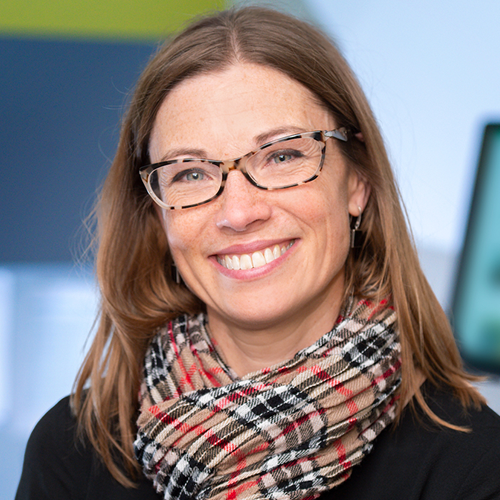
Cosette Lemelin
Centre for Teaching and Learning
Assistant Director
Cosette has 20+ of experience in adult and post-secondary education at three universities (the University of Winnipeg, the University of Manitoba, and the University of Alberta). She has a Master of Education (2003) and PhD in Education (2016) focusing on adult and post-secondary education. Cosette’s unique specialities include educational leadership in higher education, teaching within health professions education (with a focus on clinical practicum teaching and learning), and varying aspects of interpersonal communication in teaching and learning. Cosette calls herself a “Teaching Coach” for university instructors and faculty members striving to improve their teaching one class, one activity, or one interaction at a time. She is the Chair of the Educational Developer Network of Alberta (EDNA). Cosette is the 2019 recipient of the University of Alberta Excellence in Learning Support Award, and received the award again in 2020 with the CTL Team as part of their COVID 19 Response.
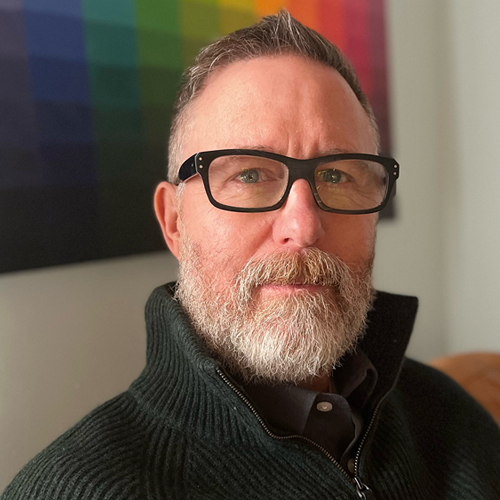
Brad Ambury
Centre for Teaching and Learning
Lead Educational Developer, Assessment and Evaluation
Brad brings to his role with the CTL team over 15 years of experience working as a lecturer in four post-secondaries (the University of British Columbia, the University of Colorado at Boulder, the University of North Carolina at Charlotte, and the University of Alberta). Brad also has 8 years of direct experience working as a Lead Educational Developer at a polytechnic (NAIT) where he undertook a wide range of project work that included both curriculum development and faculty support. His expertise and experience is in building teaching and learning resources, exploring issues related to Writing-Across-the Curriculum, and leading academic program (and course) mapping projects, including their design and development. As a Lead ED with CTL, Brad’s principle areas of interest include (but are not limited to): finding impactful ways to better align curriculum outcomes with meaningful assessment practices; supporting the development of assessment practices to enhance students' learning experiences; and collaborating with faculty to weave relevant assessment processes and practices into the contexts of individual programs and courses.
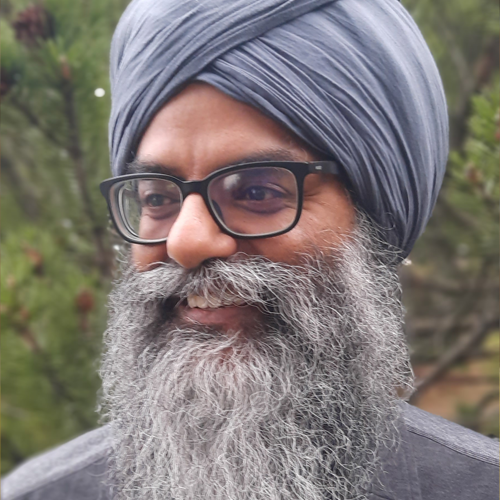
Dalbir Sehmby
Centre for Teaching and Learning
Educational Developer, Writing and Multimodal Communication Pedagogies
An award-winning instructor with over 20 years of experience across multiple fields, Dalbir Sehmby (PhD, Comparative Literature and Film/Media Studies) views teaching as a skill that requires continual practice and classrooms as spaces that alter with each cohort. As an Educational Developer, Dr. Sehmby does not adhere to one methodology but mixes established and contemporary approaches while seeking insights from instructors, guidance from learning outcomes, and advice from students. A TEDx speaker and the University of Alberta’s 2016 Last Lecturer, Dalbir values clear communication as a common denominator in composing across curricula and multimodal media. Dalbir has innovated learning via the “Stresstival” methodology, which privileges student-centred skill building, emotional self-awareness, and life-work balance. Dalbir believes it is possible for instructors and students to be a responsible team of holistic learners who can laugh and learn while cooperating to create a healthy campus community of champions.
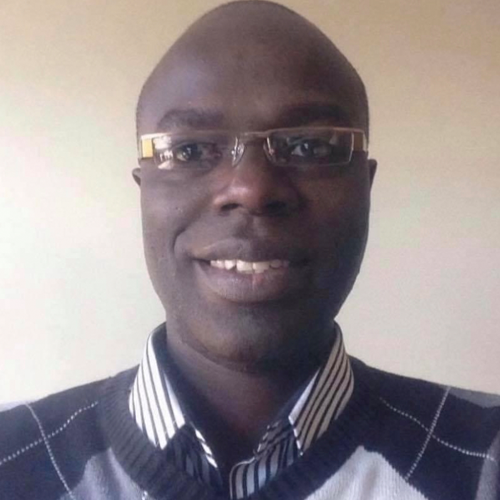
Everett Igobwa
Centre for Teaching and Learning
Lead Educational Developer, Critical Pedagogies and Equity, Diversity, and Inclusivity
Everett Igobwa, PhD (ABD), MA, BEd has over 19 years experience as an educator in contexts ranging from K-12 to post-secondary education, including roles supporting faculty and graduate students at Queen’s University, York University, Yukon University and University of Alberta.
Everett is interested in Equity, Diversity, and Inclusivity (EDI), critical pedagogies, decolonization, Indigenization, developing and co-facilitating the Instructional Skills Workshop (ISW) training, course design and redesign, student-centred pedagogy, professional development for faculty, online, hybrid and blended pedagogy.
Collaborating with instructors to demystify teaching and learning is rewarding and meaningful to Everett.
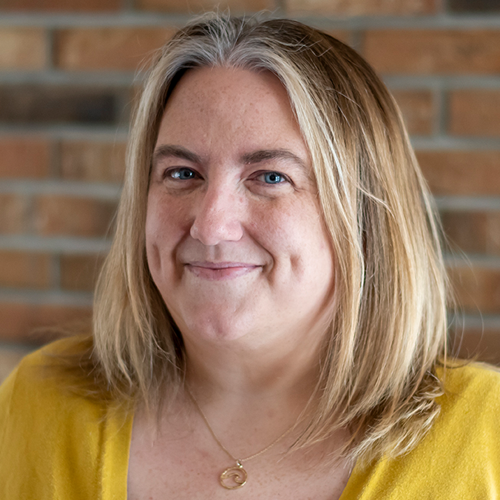
Mandy Penney
Centre for Teaching and Learning
Lead Educational Developer, Digital Pedagogies and Access
Mandy (she/her) is a queer settler and scholar and an experienced educator originally from Newfoundland. Holding degrees in both the sciences and the humanities (BSc, BA(Hon), and MA), she is passionate about digital pedagogies, writing instruction, accessibility, and communities of practice/care. She has worked as both faculty and academic staff (i.e., parafaculty), including as a coordinator of a writing and learning centre. Mandy advocates for equitable, values-driven, and relationship-based practices in teaching and learning: practices that can be approached through digital and writing-based community-building. She is an active member of the Canadian Writing Centres Association and the International Writing Centres Association, as well as a co-editor of a special conference edition of Discourse and Writing / Rédactologie. Mandy aims to collaborate with the University of Alberta community toward (re)imagining teaching and learning possibilities at this important and challenging global moment.
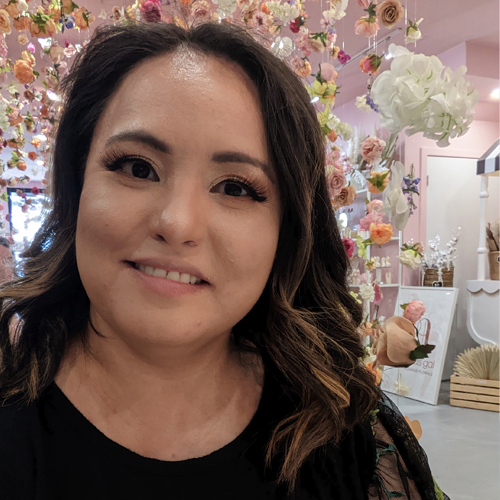
Lori Ireland
Centre for Teaching and Learning
Educational Developer, Indigenous Curriculum and Pedagogy
Abenanes - Greetings! Lori Ireland (she/they) is from Xeni Gwet’in First Nation and grew up in Tŝilhqot'in and Secwepemc territory in the interior of what is now colonially called British Columbia. The lands in which Lori calls home (Xeni Gwet’in) did not enter into Treaty negotiations, and their Aboriginal Title was federally acknowledged in 2014. Lori has been a guest on Treaty 6 territory and the homelands of the Métis peoples for more than 10 years. Lori has 15 years experience working with various Indigenous peoples within numerous capacities, including for the purposes of building community as well as for supporting and sustaining Indigenous ways of knowing, teaching, learning, and being. As an Educational Developer at the Centre for Teaching and Learning, Lori focuses on the development and integration of Indigenous ways of knowing into teaching resources, strategies, and academic, personal, and professional development of instructors and instructional teams at the University of Alberta. Sechanalyagh - thank you.
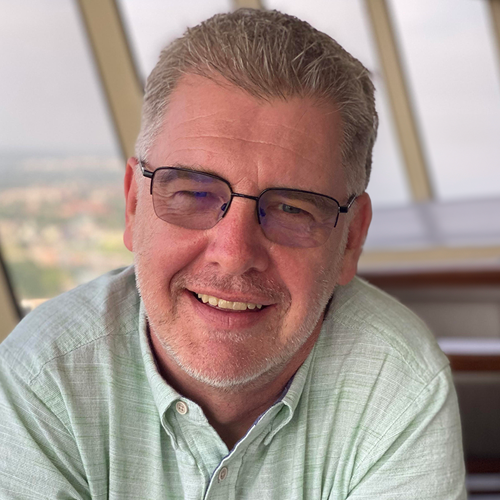
Graeme Pate
Centre for Teaching and Learning
Lead Educational Developer, Instructional Practice and Academic Development
Graeme has over 30 years of experience integrating effective teaching methodologies and educational technology with impactful course design. He has been an Educational Developer at the Centre for Teaching and Learning for 5 years and was instrumental in our Centre’s response to pandemic needs in teaching development, particularly in self-directed online resources, events, and course development.
He spent 28 years in Scotland in education, eighteen of which were at the University of Glasgow (School of Education and School of Interdisciplinary Studies), where he was the Programme Director for the B.Ed (Hons.) and MA Primary Education degree programmes. Graeme was presented with three Excellence in Teaching awards by the University of Glasgow for course design, implementation of teaching methods and the use of technology to enhance learning and teaching. He also received the University of Alberta Excellence in Learning Support Award in 2020 with the CTL Team as part of their COVID-19 response.
Graeme’s experiences and expertise will allow the CTL Leadership to explore the possibilities of planned and scaffolded approaches to instructional practice and academic development at the University of Alberta.
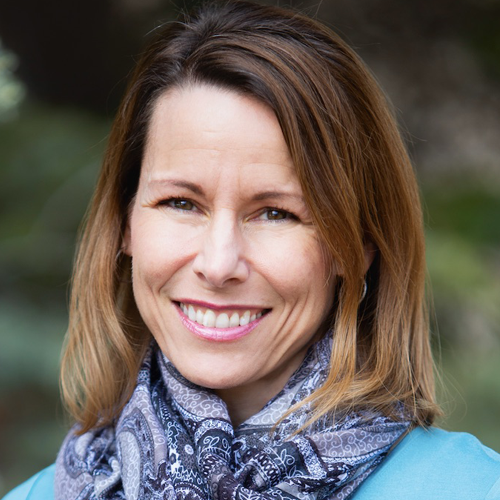
Anita Parker
Centre for Teaching and Learning
Lead Educational Developer, Online and Hybrid Instruction and Strategy
Anita brings two decades of science teaching in in-person, online, and hybrid secondary and post-secondary classrooms to her educational development portfolio at CTL. She is also experienced in leading professional development workshops and individual coaching for instructors with a focus on maximizing student engagement with authentic activities and assessments. Since 2015, Anita has worked closely with instructor teams from across the University with their blended and online learning resources and projects. This includes helping build course frameworks on eClass, planning student-centred learning experiences, and storyboard creation for pre-recorded lecture video content.
Anita enjoys being part of a team that supports teaching and learning excellence in online, hybrid, blended, and face-to-face environments.
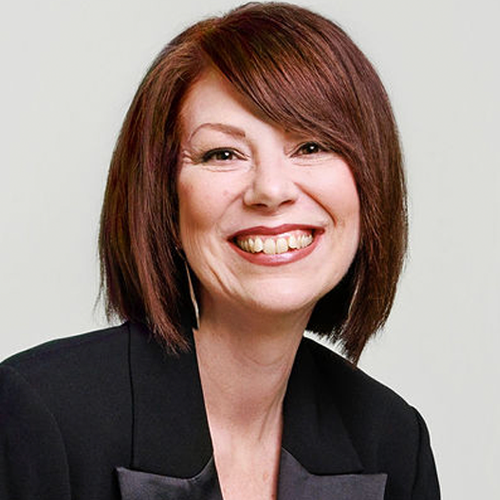
Deanna Davis
Centre for Teaching and Learning
Executive Director
Dr. Deanna Davis is an alumnus of the Augustana and North campuses and has a longstanding affiliation with the University of Alberta. She is known as a “convenor” of people, bringing together faculty and staff from every corner of campus to develop award-winning educational initiatives. Her leadership roles have spanned many aspects of U of A’s teaching and research enterprise, including in the Faculty of Graduate and Postdoctoral Studies and Organizational Development, HRHSE. She was pivotal in implementing Canada’s first Professional Development Requirement, which supported career planning and readiness for U of A’s graduate students. Dr. Davis also led the development of numerous institutional and educational initiatives, including the curricular redesign of the Ethics and Academic Citizenship Requirement, integrating EDI and Indigenous perspectives. She led the structural and curricular redesign of the multi-tier Graduate Teaching and Learning Program, where she also taught pedagogy and course design. With more than two decades of teaching experience across different levels and departments, including the Department of Music, Dr. Davis brings a multifaceted perspective to the Centre for Teaching and Learning and expertise in pedagogical strategies and curriculum design. Her certifications in EQi 2.0/360, Serious Lego Play, and coaching add further to her diverse skill set. Dr. Davis has received numerous awards, including the APO Recognition Award (2023), highlighting her contributions to the U of A community.
Elder Evelyn Day
Elder
